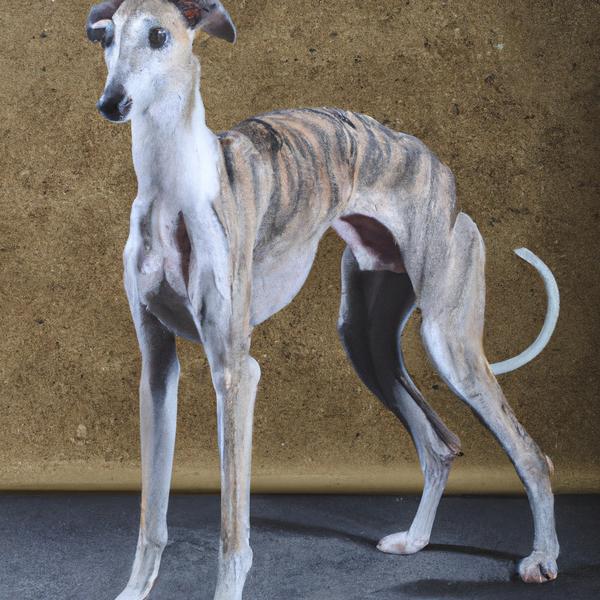Whippet vs. Papijack: Breed Differences and Similarities
Hypoallergenic
Are Whippets or Papijacks hypoallergenic, or neither?
Unfortunately, neither Whippet nor Papijack are hypoallergenic, which may not make them the best choice for dog lovers who suffer from pet allergies.
Temperament
What are the personalities of Whippet and Papijack dogs?
Affectionate
Gentle
Lively
Friendly
Intelligent
Quiet
Outright
Adaptable
Companionable
Stubborn
Independent
Happy
Energetic
Alert
Courageous
Intelligent
Friendly
Cheerful
Shedding Level
Do Whippets shed more than Papijacks, or which breed sheds more, Whippets or Papijacks?
Whippets are low shedding dogs, requiring minimal coat care.
Papijacks are moderate shedders, but regular brushing can reduce shedding and maintain coat health.
Watchdog Ability
Which dog breed makes a better watchdog, the Whippet or Papijack?
Whippets are decent watchdogs - they'll alert their owner if something seems amiss.
Papijacks aren't great guard dogs; they tend to just watch without taking action.
Ancestry
What are the origins of Whippet and Papijack breeds?
terrier, greyhound, spaniel
Papillon, Jack Russell Terrier
Breed recognition
Which kennel clubs recognize/register Whippet and Papijack?
American Canine Registry
American Kennel Club
Canadian Kennel Club
Dog Registry of America Inc.
Federation Cynologique Internationale
North American Purebred Registry, Inc.
American Canine Association, Inc.
Australian National Kennel Council
Continental Kennel Club
National Kennel Club
New Zealand Kennel Club
United Kennel Club
Canadian Canine Registry
DRA = Dog Registry of America, Inc.
Date of Birth
When were Whippet and Papijack breeds first developed?
1800s
Unknown
Eye Color Possibilites
What are the eye colors of Whippet and Papijack dogs?
Brown
Brown
Nose Color Possibilites
What are the natural nose colors of Whippet and Papijack?
Black
Black
Brown
Coat Color Possibilites
What are the natural colors of the coat for Whippet and Papijack breeds?
Black
Blue
White
Fawn
Red
Brindle
Blue
Red
Brown
Fawn
Black
White
Coat Length
What is the typical coat length for Whippet and Papijack breeds?
Whippets have coats that can be either short or medium in length.
Papijacks have medium-length coats.
Coat Density
What is the density of the coat of Whippet and Papijack?
Coat Texture
What is the hair texture of Whippet and Papijack?
Straight
Litter Size
What is the usual litter size for Whippet and Papijack?
A Whippet can have a litter of 12-15 puppies on average. However, it's worth noting that the size of the litters can vary greatly. Factors that can influence litter size include the health of the mother, breeding history, and genetics.
A Papijack can have a litter of 4-8 puppies on average. However, it's worth noting that the size of the litters can vary greatly. Factors that can influence litter size include the health of the mother, breeding history, and genetics.
Adaptability
Whippet and Papijacks are known for their adaptability and versatility. They are capable of adapting well to a wide range of lifestyle changes and living environments, making them great companions for families and individuals of all lifestyles.
Health Issues
Between Whippet and Papijack, which breed is more prone to health problems?
Whippet and Papijack breeds are generally considered to be healthy. However, like all breeds, they are susceptible to certain health issues and it is important to keep an eye out for them and address them with your veterinarian as needed.
Major Concerns
What are the major health concerns for Whippet and Papijack breeds?
Progressive Retinal Atrophy
Von Willebrand's Disease
Anesthesia Sensitivity/Allergy
Corneal Dystrophy
Legg-Calve-Perthes Disease
Minor Concerns
What minor health issues should be kept in mind when owning Whippet and Papijack?
Cataracts
Lens Luxation
Patellar Luxation
Occasional Tests
What occasional tests are recommended for Whippet and Papijack breeds?
Blood Test
Dna For Vwd
Eye Examination
Physical Examination
X-Rays
MRI
CT Scan
Physical Examination
Ultrasound
Radiographs
Blood Count
Behavioural Analysis
Chemical Analysis
Energy
How do the energy levels of Whippets and Papijacks compare?
Whippets thrive on an active lifestyle due to their high-energy nature.
Papijacks are suitable for those with a balanced lifestyle as they have an average energy level.
Social Needs
Whippet vs Papijack social needs comparison
Whippet has average social needs and is less independent than other breeds.
Papijack has above average social needs and thrives with interaction with humans and other dogs.
Exercise Needed
Whippet vs Papijack exercise need comparison.
The Whippet and Papijack breeds require a moderate amount of physical activity to maintain a healthy lifestyle. They are ideal for people who have a moderate amount of time to devote to their pets and enjoy regular physical activity themselves. They also make great family pets as they have the energy to keep up with children and the temperament to be great companions.
Sleeping Need
Which of the two sleeps the most/least: Whippet or Papijack?
Whippets are active and require sufficient sleep to stay healthy.
Papijacks sleep less than other breeds but still need adequate sleep for good health.
Tendency to Bark
Do Whippets or Papijacks bark more/less frequently?
Whippets are typically quiet and only bark when needed, such as to alert their owner or when in distress.
Papijack dogs are generally less vocal than other breeds and only bark when necessary, such as to alert their owner or communicate.
Mouthiness
Mouthiness Comparison: Whippet vs Papijack?
Roaming urge
Whippet vs Labrador: Running away tendency?
Prey Drive
Whippet or Papijack - which breed has a higher level of prey drive?
Past times
What are some enjoyable activities and ways to keep Whippet and Papijack entertained?
Run, Nap, Hunt, Fetch, Nose work, Eating Snacks, Dog Parks, Walks, Playdate, Tug-of-war, Toys
Walking, Hiking, Soccer, Dog Parks, Hiding treats, Fetch, Puzzle Toys, Tug-of-war, Run, Walk, Play, Cuddle, Car rides, Feeding time, Nap time, Running, Toys, Chase, Cuddling, Rat catching, Play keep away, Hide & Seek, Sleeping
Activity Level
Which breed has higher energy, Whippets or Papijacks?
Whippets are medium-energy dogs and typically enjoy socializing and playing casual or even sustained games of chase with other dogs. They may also have occasional periods of barking or racing around the house.
Papijacks are high-energy dogs. They need mental as well as physical exercise. These dogs require a lot of your involvement and without it they can, and will, become problematic dogs.
Tolerance of being left alone
Walks per Week
How many miles should Whippet or Papijack walk each week?
There's really no limit to how far you walk your dog as long as they're comfortable. For Whippet, it's at least 10 miles / week. Just remember to build distance and stamina gradually over time.
There's really no limit to how far you walk your dog as long as they're comfortable. For Papijack, it's at least 7 miles / week. Just remember to build distance and stamina gradually over time.
Activity per Day
Do Whippets or Papijacks require more exercise?
Both Whippet and Papijack typically require a minimum of 60 minutes of exercise each day. The exercise can be spread throughout the day and may involve high-energy activities like walking, running, and playing.
Grooming
Which breed is easier to maintain in terms of grooming, Whippets or Papijacks?
The Whippet is a low-maintenance breed that doesn't require much grooming.
The Papijack requires an average amount of grooming compared to other breeds.
Brushing Frequency
What is the recommended brushing frequency for Whippet and Papijack dogs?
In general Whippet should be brushed at least once a month. Of course you can give them more frequent brushes, especially if they enjoyed it
Papijack should be brushed at least once a week. Of course you can give them more frequent brushes if you find that they are still shedding a lot
Brushing Tools
What brushing tools are used for Whippets and Papijacks?
Slicker Brush
Nail Clipper
Pin Brush
Comb
Scissors
Nail Clipper
Cups
How much food should be given to Whippet or Papijack in cups?
For an average 25-40 pound (11 - 18 kg) Whippet feed 2.8 cups daily. But, keep in mind, the amount you feed is going to be dependent on the quality of the food you are feeding.
For an average 8-18 pound (4 - 8 kg) Papijack feed 1 cups daily. But, keep in mind, the amount you feed is going to be dependent on the quality of the food you are feeding.
Daily Cost
Which breed has a higher daily cost, Whippet or Papijack?
The average cost of a Whippet is somewhere $1.70 - $2.00 per day.
The average cost of a Papijack is somewhere $1.40 - $1.40 per day.
Monthly Cost
Which breed has a higher monthly cost, Whippet or Papijack?
The average per month expenses of a Whippet is between $48 - $63. This makes an average of $576 - $756 per year. It will be on the higher side when the dog is still small because it will need more frequent visits to the vet, shots.
The average per month expenses of a Papijack is between $35 - $42. This makes an average of $420 - $504 per year. It will be on the higher side when the dog is still small because it will need more frequent visits to the vet, shots.
Intelligence
Comparing Intelligence: Whippets vs Papijacks
Whippets are average in obedience intelligence but have a high IQ and may cause trouble if left unsupervised.
Papijack is a very intelligent and trainable breed.
Sensitivity Level
How do Whippet and Papijack compare in sensitivity?
This breed is sensitive to its environment and best suited for patient and understanding families with a consistent routine.
This breed is sensitive and requires gentle handling and a calm home environment.
Affection Dependance
Which is the more affectionate dog breed: Whippet vs Papijack?
Apartment Friendly
Which breed is more apartment-friendly: Whippet or Papijack?
Whippets make excellent apartment dogs, being fairly active indoors and not requiring a yard.
Papijacks can do well in apartments with enough exercise and time outside, but a small yard would be ideal.
Child Friendly
Do Whippets or Papijacks have a friendlier temperament towards children?
Whippet and Papijack are kid-friendly dogs. They are good with children and excellent dogs with children if they are socialized and trained at a young age.
Senior-friendly
Which dog is more suitable as a pet for the elderly - Whippet or Papijack?
Cat Friendly
Do Whippet or Papijack breeds have a better compatibility with cats?
Whippets are not cat friendly.
Papijacks are good with cats, but early training is needed to prevent chasing behavior.
Dog Friendly
Which breed is more sociable with other dogs: Whippet or Papijack?
{Whippets and Papijacks are average friendly towards other dogs. If they are raised with other dogs, they are likely to get along with them. And, if they are socialized properly from a young age, they will usually be great with other dogs.
Pet friendly
How do Whippet or Papijack dogs interact with other pets?
Stranger Friendly
Which breed is more friendly with strangers: Whippet or Papijack?
Whippets are averagely friendly around strangers but benefit from early socialisation.
Papijacks are friendly but may bark at strangers, and training is easy due to their intelligence.
Playfulness
Which breed is more playful between Whippet and Papijack?
Whippets have an average level of playfulness, enjoying playtime like most dogs but not excessively so.
Papijacks are very playful, so adopting an older one might be a better option for a more relaxed experience.
Trainability
How do the trainability levels of Whippets and Papijacks compare?
Whippet and Papijack dogs are known for their ease of training and ability to learn quickly, making them a popular choice for pet owners and trainers alike.
Compare Whippet with other breeds
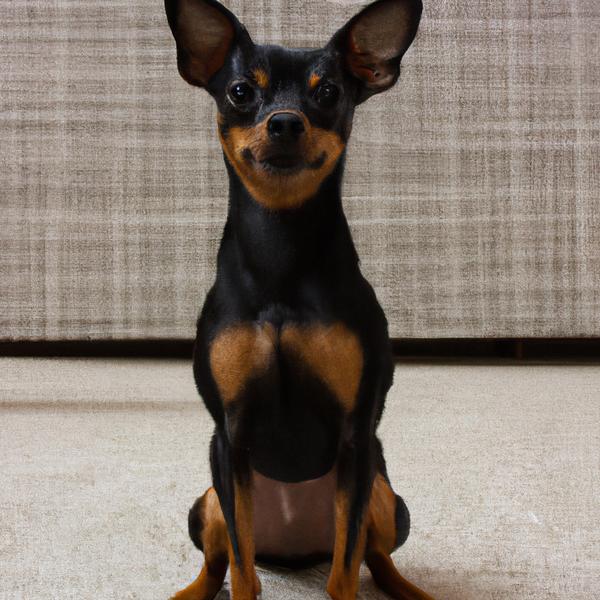
Mini Ratzer
Whippet vs Mini Ratzer

Bolo-Tzu
Whippet vs Bolo-Tzu
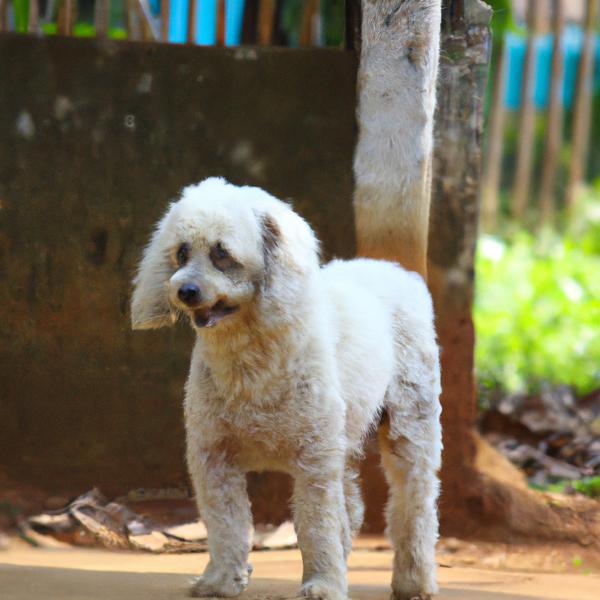
Poovanese
Whippet vs Poovanese
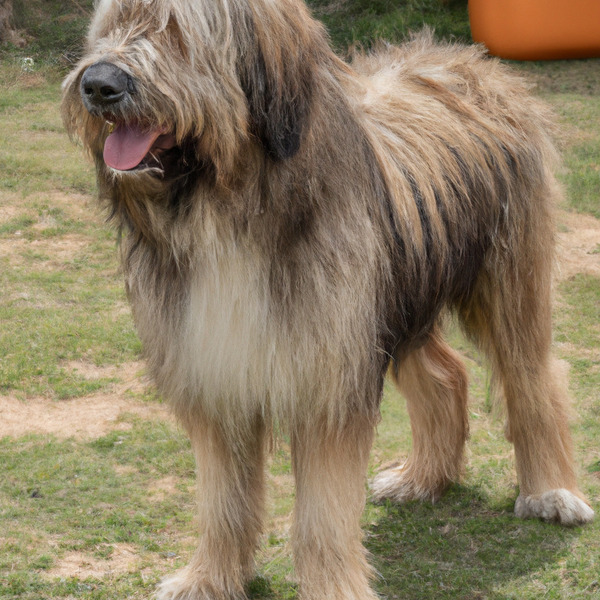
Catalan Sheepdog
Whippet vs Catalan Sheepdog
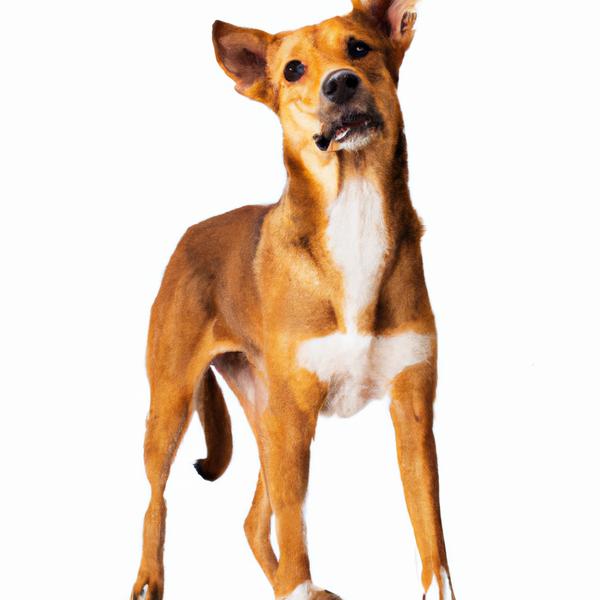
Jacairn
Whippet vs Jacairn
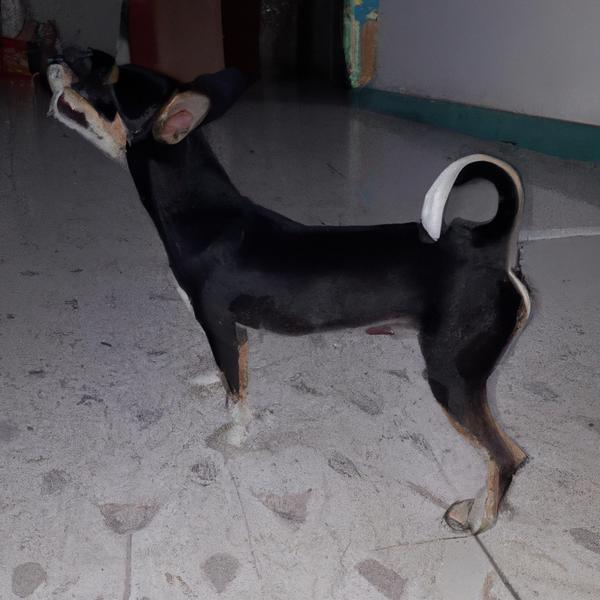
Papijack
Whippet vs Papijack
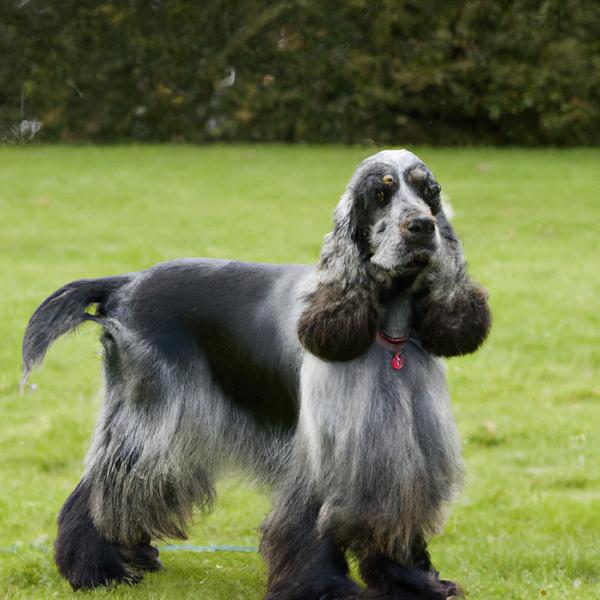
Blue Spaniel
Whippet vs Blue Spaniel

Smooth Torkie
Whippet vs Smooth Torkie
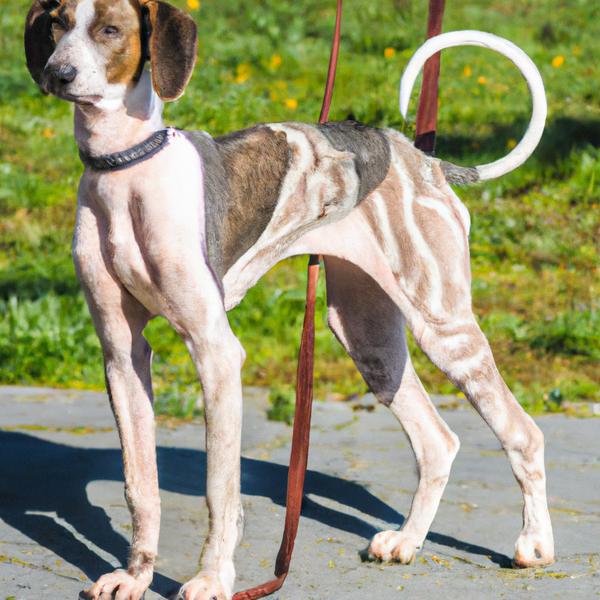
Italian Papihound
Whippet vs Italian Papihound
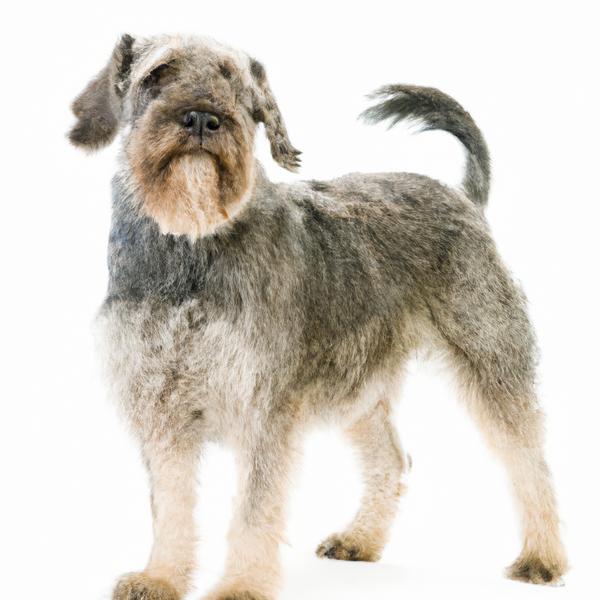
Schneagle
Whippet vs Schneagle

Ratshi Terrier
Whippet vs Ratshi Terrier
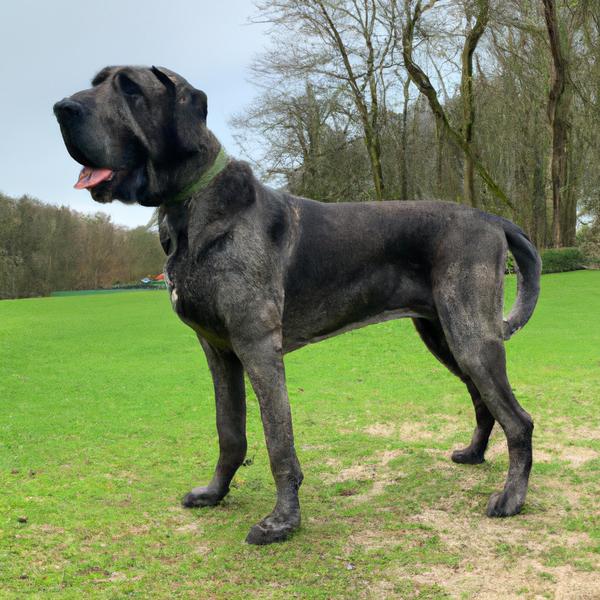
Giant Wauzer
Whippet vs Giant Wauzer
